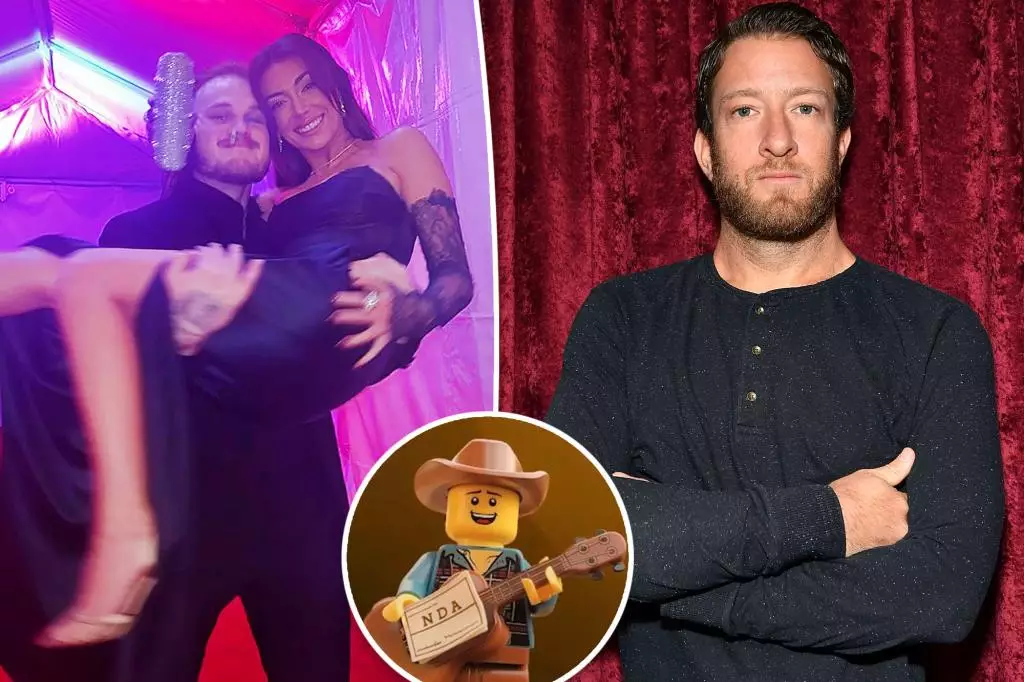In the ever-evolving arena of modern celebrity culture, diss tracks have emerged as a favored form of expression. Artists and entertainers use these songs to air grievances, challenge rivals, or capitalize on personal drama. One of the latest examples comes from Barstool Sports founder Dave Portnoy, whose recent musical creation takes aim at country music star Zach Bryan. With the enraged fervor that is typical of diss tracks, Portnoy’s intentions are clear—not only to provoke Bryan but also to court attention and public engagement.
The genre has a long and storied history in hip-hop, with rappers like Tupac and Biggie setting the stage for a competitive musical dialogue. However, diss tracks have now permeated other musical genres, infusing them with a sense of urgency and authenticity. Portnoy’s artistry may seem superficial, yet it unveils a greater phenomenon: individuals forging identities through public confrontations.
Barstool Sports and Portnoy’s Prowess
Dave Portnoy knows how to leverage media for personal and brand promotion. He has built a formidable presence in sports and entertainment, and his diss tracks serve both as catharsis and controversy. Portnoy’s recent lyrical attacks against Zach Bryan revolve around complicated personal relationships, underscoring not only his musical ambitions but his knack for media manipulation.
By aligning Bryan with Sean “Diddy” Combs, Portnoy utilizes cultural reference points to amplify his critique. The emphasis on Bryan’s alleged attempts to muzzle LaPaglia—his ex-girlfriend—reveals how diss tracks often intersect with social issues. Portnoy’s verse about facing off against Bryan with lines like “Someone tell your cheap lawyers I don’t give a f***” encapsulates this combative spirit while bringing attention to the darker themes related to power dynamics in relationships.
Lyrics and Symbolism: More Than Just Words
Analyzing the lyrics of Portnoy’s latest effort, one can see them as a complex tapestry of personal vendettas and public theater. The phrase “Country Diddy” is not merely a jab but reveals deeper implications about the intersection of identity and authenticity. Portnoy’s use of language aims to mock, but it also creates a dialogue about what it means to be a public figure embroiled in allegations and fame.
The music video adds another layer to this artistic expression. By featuring a Lego figure, Portnoy cleverly juxtaposes the gravity of the subject matter with an irreverent visual that comments on the absurdity of the feud. The inclusion of elements such as an “NDA” paper signifies the opacity often surrounding issues like consent and personal history, encapsulating what many individuals experience behind the scenes in their relationships.
Brianna LaPaglia’s response to the diss track has been equally provocative. Her characterization of the track as “lethal” suggests an awareness of the implications accompanying Portnoy’s bold assertions. LaPaglia’s assertion that she turned down a multimillion-dollar payoff speaks volumes about her commitment to her narrative, pushing back against a powerful figure in the music industry.
Moreover, Portnoy’s unwavering commitment to continue writing diss tracks emphasizes an exhilarating—if not reckless—embrace of conflict. His claim to produce “10,000 diss tracks” is a hyperbolic promise revealing the modern ethos of fame, where personal setbacks can spark creative endeavors. The fallout from this feud isn’t just a fleeting spectacle; it underscores a cultural preoccupation with celebrity disputes and the narratives they generate.
Both Portnoy and Bryan navigate a landscape rife with opportunities for public engagement. In a world where social media can amplify disputes in real-time, their rivalry exemplifies how personal conflicts can serve broader societal conversations about power, identity, and accountability. As consumers of celebrity culture, we are often privy to these dramatic exchanges that blur the lines between artistry and authenticity.
Thus, while Portnoy’s diss track may initially appear as a superficial blemish on the fabric of entertainment, it encapsulates a moment in the larger narrative of modern celebrity feuds. This clash serves as a reflection of our fascination with those in the spotlight, reinforcing our desire for transparency in their successes and failures. Ultimately, the tension generated through such controversies fuels a cycle of content, engagement, and, inevitably, public discourse that keeps us all captivated.

Leave a Reply